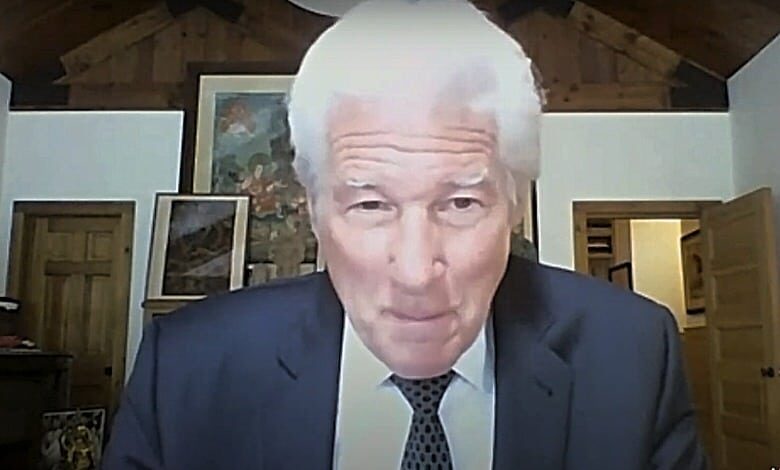Reporters Ignored Richard Gere Slamming U.S. Studios for China Appeasement
The 'Officer and a Gentleman' star says we're paying a price for self censorship

Celebrities routinely make the trek to Capitol Hill, attracting shutter bugs along the way.
Everyone from Ben Affleck to Adam Carolla drops by the nation’s capital to testify and, they hope, leverage their fame to help society. The results are mixed, of course, but their efforts generate plenty of headlines.
That wasn’t the case when a veteran movie star testified before a Senate committee June 30 on China-U.S. relations.
Richard Gere’s “virtual” appearance didn’t draw a crowd. Nor did entertainment reporters, who normally pounce on any politically outspoken star, deem what Gere said worthy of news coverage.
And he said plenty.
Gere has been a persistent China critic, using his celebrity cache on and off screen to support Tibet over the years. He said he’s been punished for that stance, coaxing mainstream movie studios to all but ignore him. Unbowed, Gere continues to work in independent cinema, think movies like “Norman,” “The Dinner” and “Three Christs,” routinely drawing strong reviews along the way.
And, at 70, Gere remains as dashing as ever.
Gere testified before the “Censorship as a Non-Tariff Barrier to Trade” hearing held by the Senate Finance Committee’s Subcommittee on International Trade, Customs, and Global Competitiveness.
Gere addressed the difficult ties between China and Tibet, noting “the Chinese government highly restricts access to Tibet for Americans—including journalists and politicians—like no other areas of China.”
He then turned his attention to Hollywood’s subservient relationship to China, which impact more than just what we see on screens across the globe.
“There’s no doubt that the combination of Chinese censorship, coupled with American film studios’ desire to access China’s market, can lead to self-censorship and to avoiding social issues that great American films once addressed….”
“Imagine Marty Scorsese’s ‘Kundun,’ about the life of the Dalai Lama, or my own film ‘Red Corner,’ which is highly critical of the Chinese legal system. Imagine them being made today. It wouldn’t happen.”
Disney helped bring Scorsese’s 1997 film to the big screen. Later, Disney CEO Michael Eisner apologized to the Chinese government for the film, calling it a “stupid mistake.”
Gere then noted why Chinese film workers cannot afford to collaborate with him in any fashion.
One Chinese director “was in tears with me having to call me up and say that he couldn’t work with me,” Gere said, “that his career would be over, and his family could not travel. So this is personal to a lot of people.”
How did this reporter learn of Gere’s testimony? It’s buried in a recent story about PEN America similarly castigating Hollywood for genuflecting before Chinese censors.
On Aug. 5, PEN America published an explosive report that may put Hollywood on the defensive. Titled “Made in Hollywood, Censored by Beijing,” the 94-page study details how the major studios and A-list directors increasingly are making decisions — including cast, plot, dialogue and settings — “based on an effort to avoid antagonizing Chinese officials.”
That report generated some media coverage, which is surprising given how entertainment journalists aren’t comfortable critiquing Hollywood from this perspective. That feeling intensified in recent months as the Trump administration ratcheted up the rhetoric against China due to its connection to the pandemic.
The Chinese government has been in the headlines, again, in recent weeks after footage leaked of “Uighur prisoners being herded into trains.” It’s only one of several Chinese policies alarming human rights activists.
Gere remains focused on China, its treatment of Tibet and how U.S. based movie studios bend over backward to appease their censors. It’s a shame it took weeks for news consumers to get Gere’s comments in full.
The rest of Hollywood? Virtual silence. Even the most progressive, outspoken stars can’t spare a word critiquing China, its policies or conditions on the ground routinely compared to concentration camps.
